Plaid pledge to meet electricity needs from renewable energy
- Published
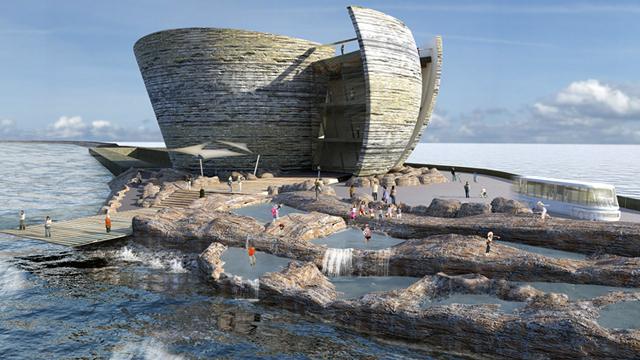
Plaid Cymru wants to promote renewable energy sources such as the Swansea Bay tidal lagoon
Wales could meet its electricity needs from renewable energy sources within 20 years, Plaid Cymru has said.
If it wins power, the party has vowed to back community-owned power schemes and an energy efficiency drive.
Energy spokesman Llyr Gruffydd said Wales generated twice as much electricity as it uses but only 10% came from renewable sources like wind.
Dr Ian Masters from Swansea University said the policy would be expensive but achievable and could create jobs.
Mr Gruffydd was launching the policy with a visit to the proposed £1bn Swansea Bay tidal lagoon project, which he hailed as "innovative".
"Wales is an energy rich nation. We generate almost twice the electricity we use but too much of that currently relies on burning fossil fuels," he said.
"We are well placed to take advantage of the global shift towards renewables and enjoy the economic benefits that comes with it - but at the moment we are not realising our potential."
'Realistic'
On cutting energy use, he said Plaid Cymru would update building regulations as a way of ensuring better efficiency.
"We'll lead by example by doing more to ensure public buildings help with generating and saving energy too," he added.
Dr Masters, a lecturer in renewable energy, said he thought the policy was realistic.
"Wales has the natural resources. We have wind, we have tide, we have space to build solar farms as well, so we have all the opportunities in terms of our natural resources and with the right political will I think it is perfectly possible.
"It would be expensive, but remember we export half the electricity we generate to the rest of the UK so we will get the jobs benefit here in Wales and we will export green electricity."
However, Prof Alan Guwy, head of the Sustainable Environment Research Centre at the University of South Wales, said one practical issue would be the intermittent nature of energy from sources such as wind power, which are dependent on weather conditions.
"One of the big hurdles for a 100% target is the need for significant storage in the grid," he said.
"Renewables don't always come when demand dictates."
- Published9 July 2015
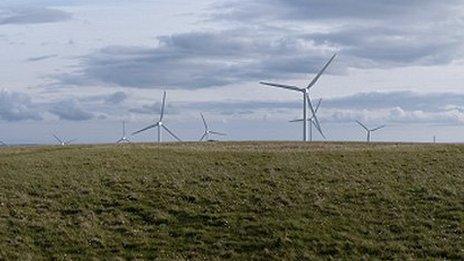
- Published7 July 2015
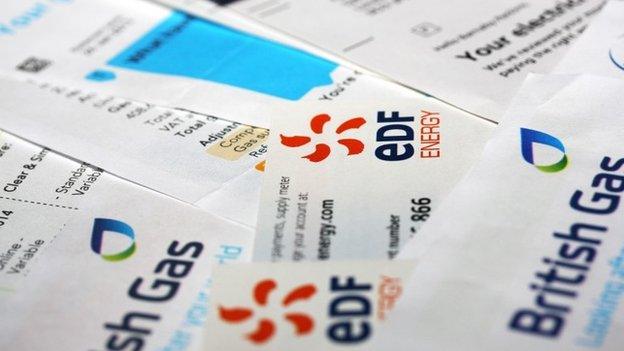
- Published25 June 2015
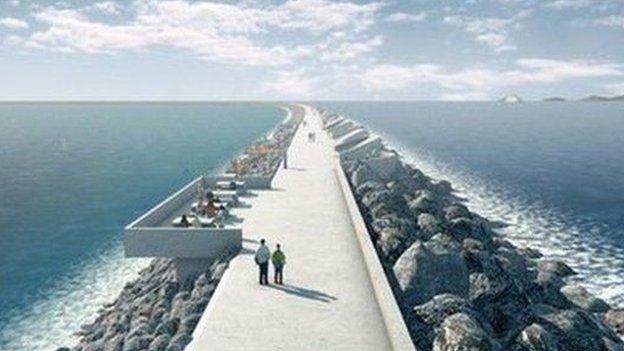
- Published22 June 2015
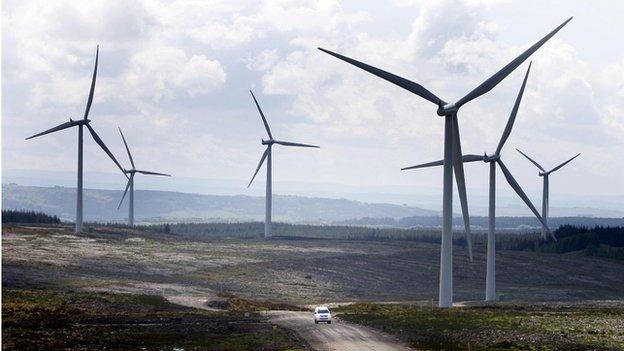
- Published15 December 2014
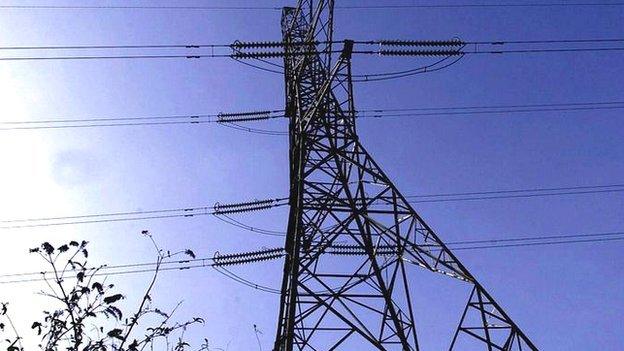
- Published11 October 2013
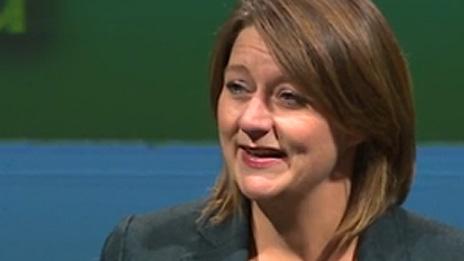
- Published4 February 2013